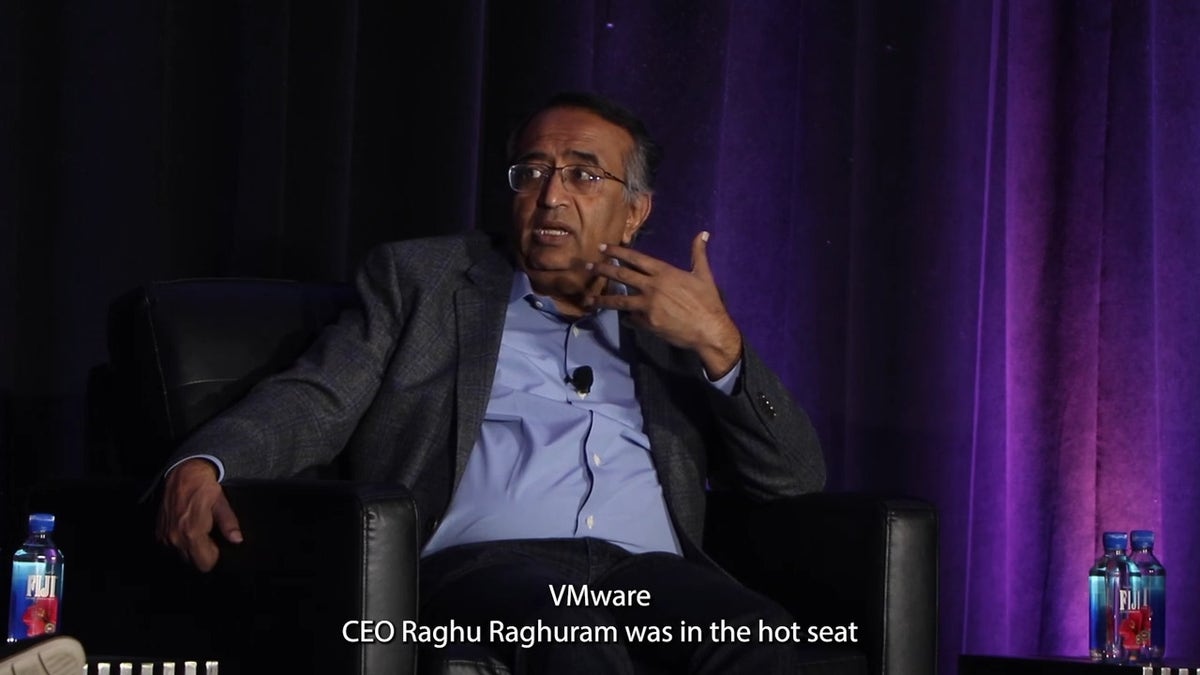Broadcom's Extreme VMware Price Hike: AT&T Faces 1,050% Cost Increase

Table of Contents
Understanding the VMware Price Hike After Broadcom's Acquisition
Broadcom's Business Strategy
Broadcom, known for its aggressive acquisition strategy, has a history of integrating acquired companies and leveraging their market power to maximize profitability. The VMware acquisition, one of the largest tech deals in history, fits this pattern. Broadcom likely sees VMware as a key asset to boost its enterprise software portfolio and strengthen its position in the cloud computing market. The price increases could be part of a broader strategy to consolidate market share and extract maximum value from its newly acquired asset.
- Market Dominance: Broadcom's acquisition significantly increases its influence over the virtualization market, allowing for greater control over pricing.
- Synergies and Integration: Broadcom aims to integrate VMware's technologies with its existing portfolio, potentially leading to cost savings internally, but not necessarily for customers.
- Reduced Competition: The acquisition diminishes competition, potentially leading to less pressure on pricing and innovation in the virtualization space.
The Impact on AT&T
AT&T's reported 1050% increase in VMware licensing costs represents a massive financial burden. This translates to millions, if not billions, of dollars in added expenses. This unexpected surge dramatically impacts their operational budgets and could force difficult choices regarding investments in other critical areas.
- Financial Strain: The sheer magnitude of the price increase puts significant pressure on AT&T's financial performance.
- Potential Responses: AT&T may explore renegotiating its contract with Broadcom, seeking more favorable terms or potentially transitioning to alternative virtualization technologies.
- Service Impacts: The increased costs could indirectly affect AT&T's services and pricing, potentially impacting consumers and businesses that rely on their infrastructure.
The Broader Enterprise Impact
The impact extends far beyond AT&T. Many other enterprises relying on VMware virtualization solutions face similar, albeit potentially smaller, price increases. This widespread impact will significantly affect IT budgets across various sectors.
- Widespread Price Hikes: Businesses of all sizes should anticipate increased VMware licensing costs.
- Budgetary Constraints: The price increases strain IT budgets, potentially forcing companies to cut spending elsewhere.
- Shifting to Alternatives: The substantial cost increases could accelerate the adoption of open-source virtualization solutions or other competitive offerings.
Analyzing the Causes of the VMware Price Surge
Increased Licensing Costs
Several factors contribute to the increased VMware licensing fees. Changes in licensing models, support structures, and increased operational costs play a significant role.
- New Licensing Terms: Post-acquisition, Broadcom may have introduced new licensing terms that significantly increase costs for existing clients.
- Support and Maintenance: The cost of providing support and maintenance for VMware products has likely increased, contributing to higher licensing fees.
- Inflation and Supply Chain: Global inflation and disruptions to the supply chain contribute to the rising cost of goods and services, including software licenses.
Market Dominance and Lack of Competition
Broadcom's acquisition of VMware reduced competition within the virtualization market, providing them with considerable pricing power. The lack of strong, readily available alternatives exacerbates the problem.
- Reduced Competition: Fewer competitors mean less pressure to keep prices competitive.
- Switching Costs: Migrating from VMware to a different virtualization platform can be complex and costly, making it difficult for businesses to switch providers.
- Regulatory Scrutiny: The significant price increase may attract regulatory scrutiny regarding potential anti-competitive practices.
Strategies for Businesses Facing VMware Price Increases
Negotiating with VMware/Broadcom
Businesses should proactively negotiate with Broadcom to secure more favorable licensing terms. Effective negotiation is crucial to mitigate the impact of the price increases.
- Contract Negotiation: Businesses should leverage their negotiating power, particularly for large-scale deployments.
- Volume Discounts: Securing volume discounts or long-term agreements can significantly reduce overall costs.
- Bundling Services: Bundling VMware licensing with other services or support packages could potentially lead to better pricing.
Exploring VMware Alternatives
Considering alternative virtualization solutions is crucial for businesses seeking to control costs. While migration might involve challenges, it could offer significant long-term savings.
- Open-Source Options: Open-source solutions like Proxmox VE or oVirt offer cost-effective alternatives.
- Competitor Platforms: Other virtualization platforms, such as Citrix XenServer or Microsoft Hyper-V, offer viable options.
- Migration Considerations: Businesses should carefully assess the costs and complexities of migrating to a new virtualization platform.
Conclusion: Navigating the Post-Acquisition VMware Landscape
Broadcom's acquisition of VMware has resulted in dramatic price increases, impacting businesses significantly. AT&T's experience serves as a stark warning for other enterprises. Businesses must actively evaluate their VMware licensing agreements, explore alternative virtualization solutions, and strategically negotiate with Broadcom to avoid exorbitant VMware price increases. Through careful planning and decisive action, organizations can mitigate the financial impact and ensure the long-term stability of their IT infrastructure. Proactive planning and strategic decision-making are critical to navigate this evolving landscape and secure cost-effective virtualization solutions.

Featured Posts
-
 Lvmh Stock Slumps 8 2 Fall After Weak Q1 Sales Figures
May 24, 2025
Lvmh Stock Slumps 8 2 Fall After Weak Q1 Sales Figures
May 24, 2025 -
 The Jonas Brothers A Couples Unexpected Argument And Joes Reaction
May 24, 2025
The Jonas Brothers A Couples Unexpected Argument And Joes Reaction
May 24, 2025 -
 90 Let So Dnya Rozhdeniya Sergeya Yurskogo Geniy Paradoksov Ostroumie I Intellekt
May 24, 2025
90 Let So Dnya Rozhdeniya Sergeya Yurskogo Geniy Paradoksov Ostroumie I Intellekt
May 24, 2025 -
 She Still Waiting By The Phone My Experience
May 24, 2025
She Still Waiting By The Phone My Experience
May 24, 2025 -
 Horoscopo De La Semana Del 11 Al 17 De Marzo De 2025 Tu Guia Astrologica Completa
May 24, 2025
Horoscopo De La Semana Del 11 Al 17 De Marzo De 2025 Tu Guia Astrologica Completa
May 24, 2025
